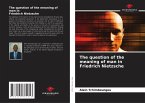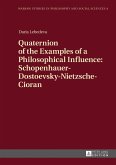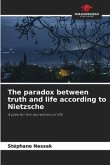The phenomenon of nihilism casts a troublesome shadow across modern society and culture. The idea was introduced by Nietzsche and concerns the loss of meaning in a world without God. Among other things, it leaves us with the problem of moral relativism and complexities regarding the judgment of good and evil. Nihilism has been treated by a whole range of thinkers across many fields, most notably in cultural studies, theology, philosophy and ethics. Towards Ethical Nihilism involves the search for a hopeful moment within the otherwise bleak expanse of Nietzschean nihilism. This book shows how Nietzsche can be read against the grain and counters the general view of nihilism as without hope. An exploration is made of the framework provided by Nietzsche s nihilism and its development in the work of Foucault with the aim of articulating a theory of ethical nihilism. This theory is an attempt to deal with the great challenge posed by nihilism to philosophical conceptions of morality and ethics, and represents an original contribution made by the author.
Bitte wählen Sie Ihr Anliegen aus.
Rechnungen
Retourenschein anfordern
Bestellstatus
Storno








